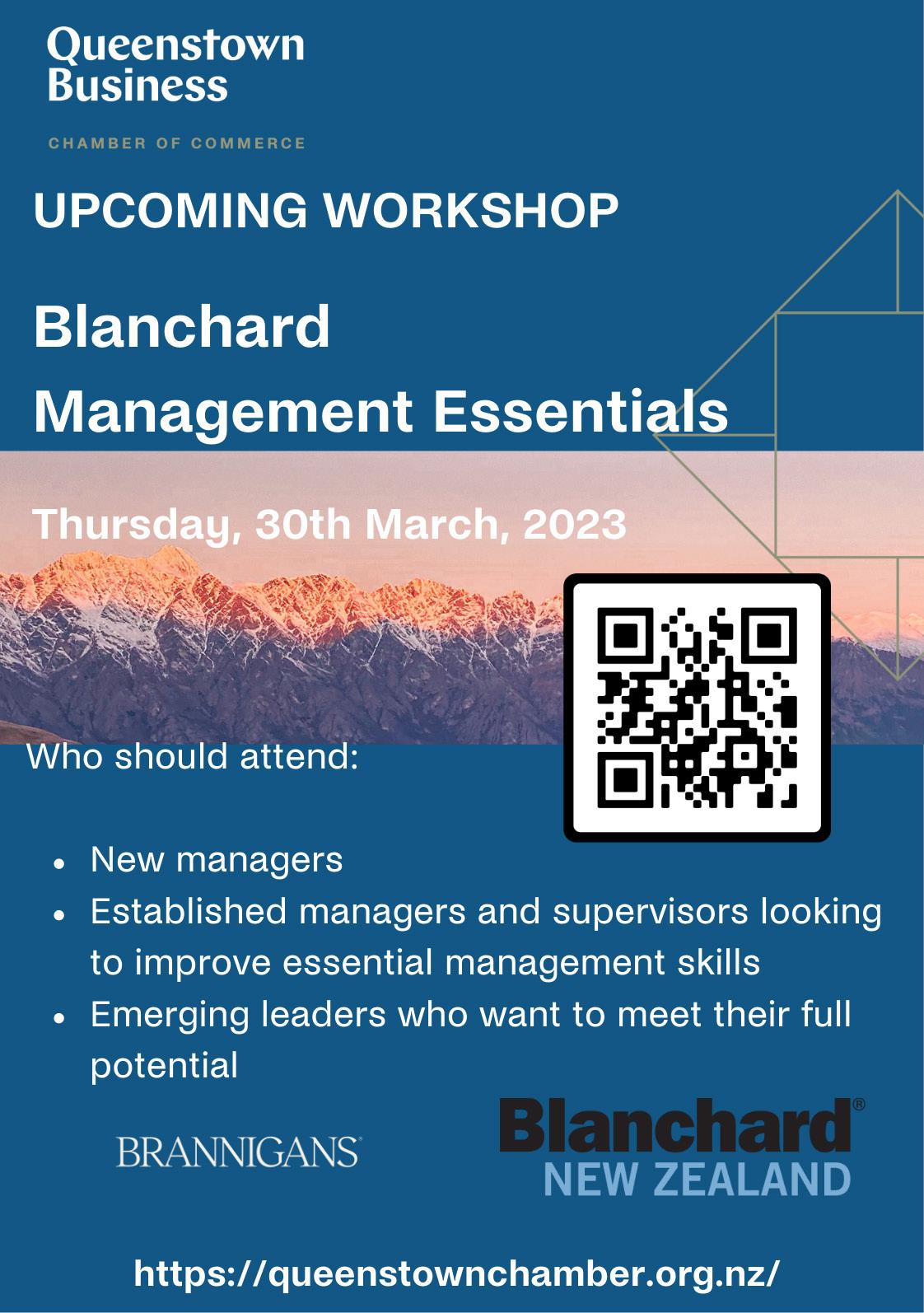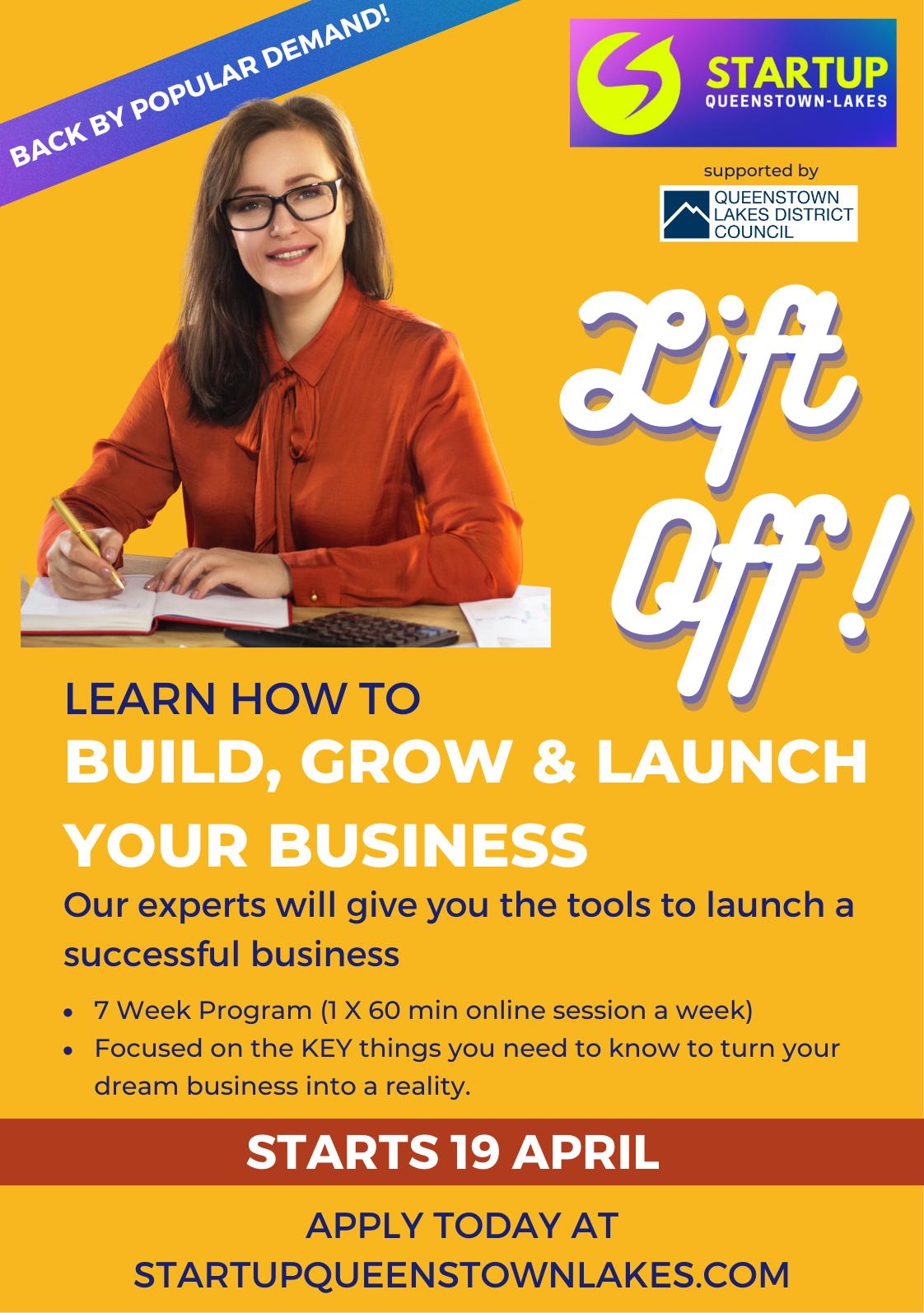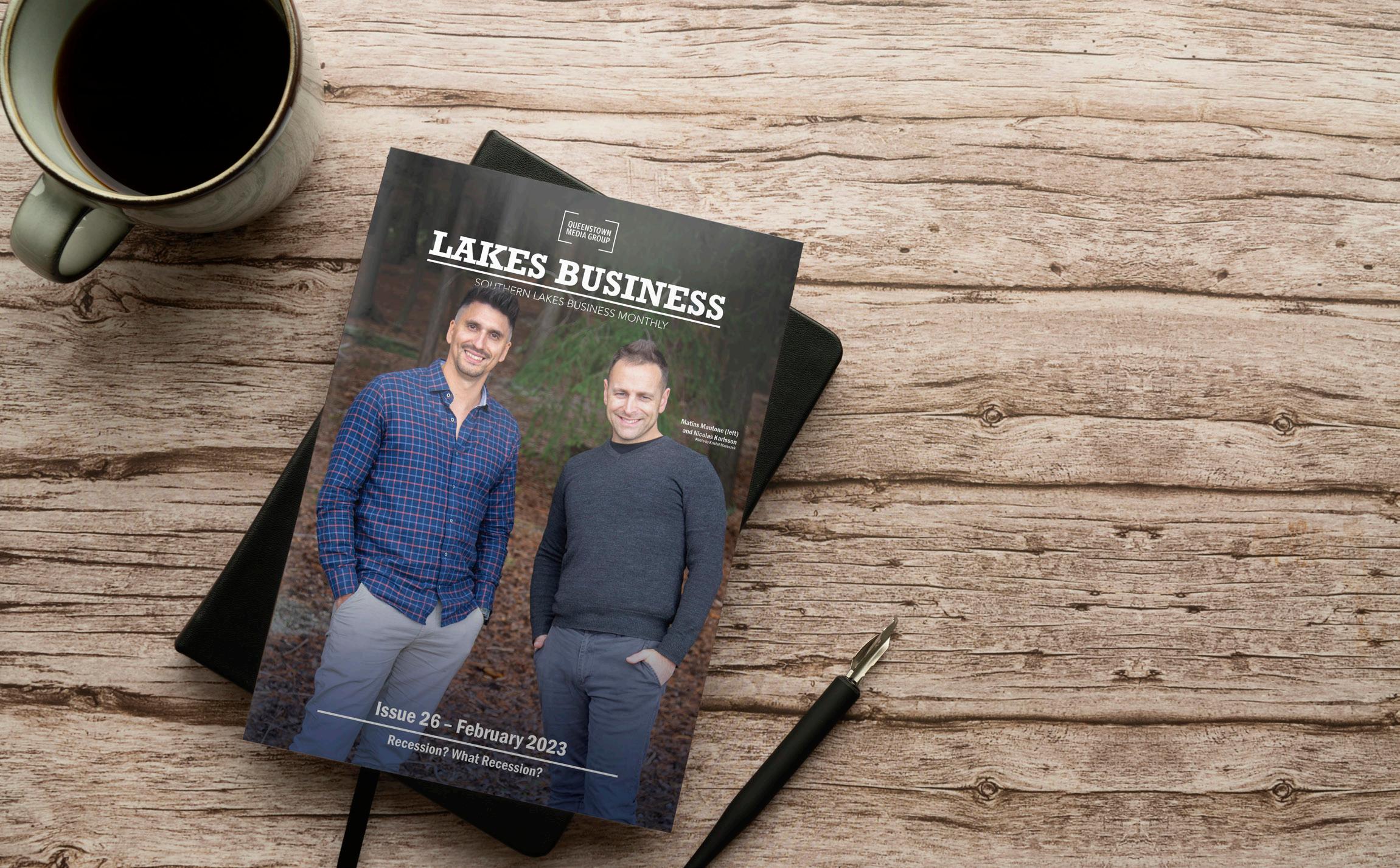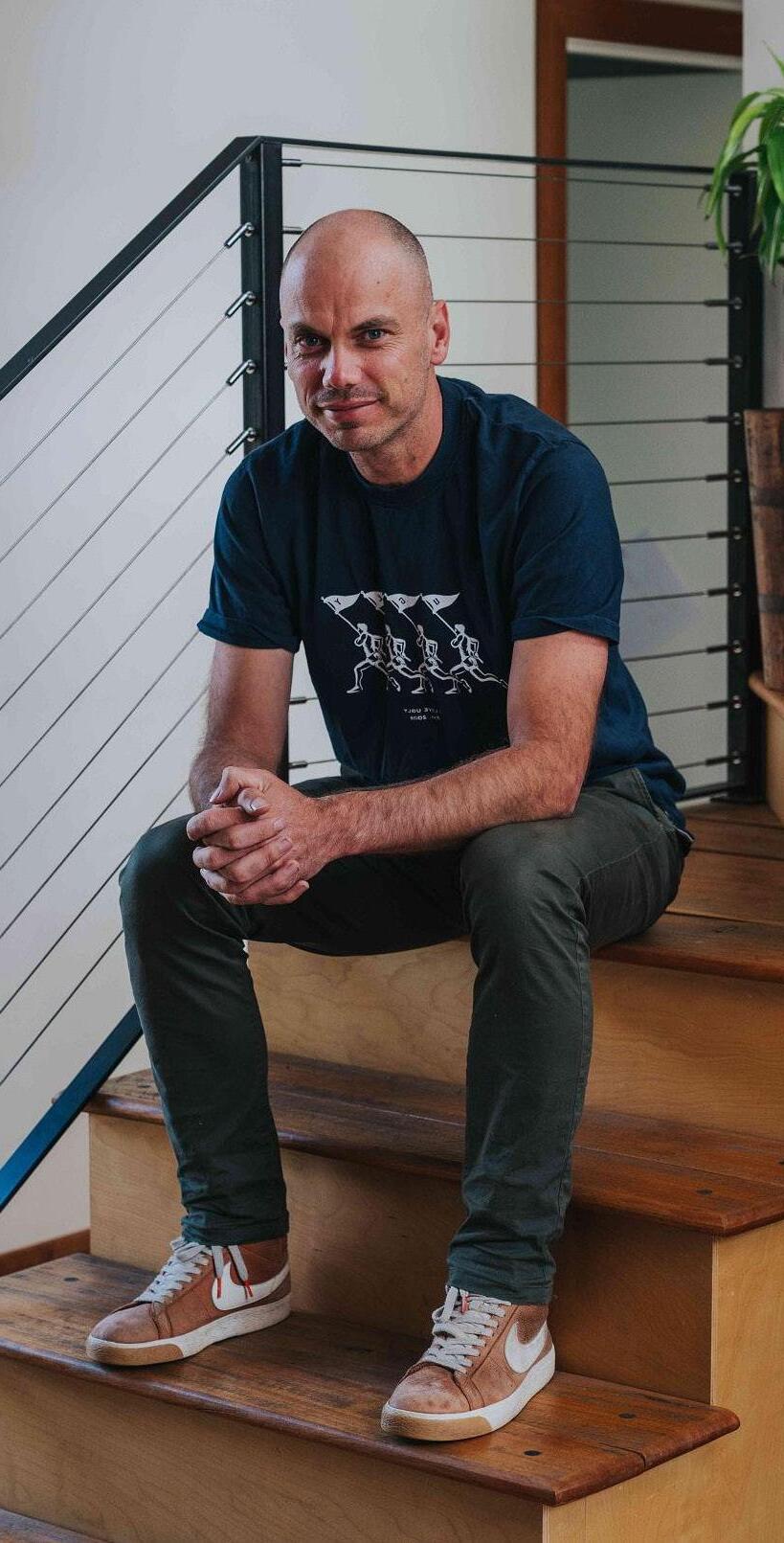
9 minute read
Business insights with Dave Hockly
by Paul Taylor
“That pushed me towards data-driven or evidence-based marketing. I liked the idea of being able to test a hypothesis, map things out and benchmark.
“Once we’ve got that benchmark, we can be creative, we can test and learn. And we can do it faster and with less stress, because we can see if we’re moving the needle or not.”
Hockly graduated with a degree in tourism management at Victoria University, before working at Wellington agencies and consulting. He moved south and says it was initially difficult to get a foothold in Queenstown, before winning the contract to help Cardrona Alpine Resort.
“We were too small to deal with the winter season, but Nadia Ellis, their marketing manager, who is an absolute gem, said ‘why don’t you give us a hand for summer?’
“We helped them triple their online revenue over the summer and it’s all really kicked off from there.”
Since then, the client list for the digital specialist agency has included Destination Queenstown, Harcourts, Queenstown Resort College, the Co-operative Bank, Microsoft, Fergburger, First Table, the New Zealand Government and many more.
As well as steering people towards buying products and experiences, work has included quitting smoking campaigns.
“A lot of what we do is understanding the buyers’ decision-making journey through data. It’s crazy how much marketing can persuade people to do something, almost without them realising it.
“We can see someone who thinks they’re making an impulse decision but they’ve had 21 ad impressions with a bunch of messaging designed to appeal to their deepest desires. People are still autonomous but it’s very hard when someone knows what you want.
“I do think, because of that, marketing can be on the right or wrong side of the conversation. The goal should be to help people make better decisions for themselves, rather than just selling stuff for the sake of it. I think marketers can change the world in that way.”
In Queenstown, that translates as the ability for companies to give locals and tourists those lifeaffirming moments.
“As businesses in the region start to get more digitally mature, we can have less competition and charge a whole lot more,” he says.
“I don’t mean scalping people because they have to buy a bottle of water. People come here to have incredible one-of-a-kind experiences, and when you provide that, they’re happy to pay more. It’s the same reason you’ll pay $12 to buy a beer in a pub when you could buy a box for $20.”
Data Story focuses on the strategy, using the best off-the-shelf programmes to compile and present the data.
“Everyone who makes a decision goes on a journey. No one just gets out their credit card. We have a framework around that, where we take a client’s marketing initiatives and map it to the buyer’s decision journey. We look at how they communicate, how they can reach the right people, the right volume, how they build trust, what marketing will give a potential customer a moment of delight, all those sorts of things.
“And then you can use the data to diagnose problems, look for causation versus correlation, and track results.”
Understanding the psychology can lead you to view the world in a different light.
“My wife does say I’m a shocker in the supermarket, looking at the product’s marketing positioning, analysing the wording and branding. It’s like when a builder walks into a house. They look at it in a different way.”
Loaded with potential
by Sue Fea
When your local student pub isn’t operating to its full potential you buy it and fix the problem, right?
That’s what friends and Cook Brothers founders, Richard McLeod, James Arnott and David and Ben Bulling, did aged just 21.
In the following years, Cook Brothers Bars quickly developed. They added a stack of bars across the country to their stable and formed Cook Brothers Construction to help get the job done.
Arnott had a strong interest in technology and was frustrated with the inefficient hospitality systems that were available, so the team launched their own – Loaded.
Now 40, they’re a far cry from those early student days when they made the bold move to bid for the lease on Dunedin’s famous Captain Cook Tavern.
“We thought it was pretty unlikely, but the breweries owning it were doing such a bad job,” says Richard McLeod.
“It felt like a moon shot for us to be the right buyer, but the expressions of interest process took so long that the qualified established operators pulled out.”
Cook Brothers enjoyed great success in a short space of time, working many hours to make the businesses work.
“We had plenty of energy then. That’s one of the benefits of starting at 21, and the naivety of youth,” says McLeod, “It was exciting and fun.”
But running the different operations together became unwieldy. So in 2013, aged 30, they sold Captain Cook Tavern and split the remaining bars and construction operations between them.
The Bulling brothers, with their engineering expertise, took over the construction business. McLeod and Arnott took the hospitality businesses and Loaded.
These days, Arnott owns Cook Brothers Bars, which includes Queenstown bars Searle Lane and Rhino’s Ski Shak.
After selling Loaded, McLeod returned to the business as CEO four years ago. His sole focus is now on growing the successful business further.
“We’re running at just under 1,000 bars and restaurants across NZ, representing about 30 to 35 per cent penetration into the market,” says McLeod.
The back-of-house system has made huge differences for clients.
“We’ve got case studies that show it’s improved profitability by 220 per cent,” explains McLeod.
“People have told us they’d have gone out of business without it.” With businesses across the country struggling with staffing shortages, Loaded is relied on even more for stock management, time-sheet management and rostering, budgeting, reporting and reconciliation.
“We hired one developer, and then two, and started developing a system and reporting tools. Over time we had a cloud-based hospitality system, which became Loaded,” says McLeod.
“Others in the industry asked if they could use it when they saw what a huge difference it had made to us. Once other operators started using it the value was eye-opening.”
Loaded was before its time, with the hospitality industry then a long way from adopting digital platforms, so they waited until the right time to actively pursue growing the business.
Industry disruptions during Covid proved to be the perfect timing, catapulting Loaded into the spotlight as more hospitality businesses realised they needed to adopt technology.
“We’ve been a core digital product for hospitality since then.”
Loaded is sold on a monthly subscription SaaS (Software as a Service) model with operators accessing it through the cloud.
“It’s been pretty transformational for people’s businesses once they implement it,” says McLeod.
To break into the Australian market, a significant injection of capital was required.
A recent capital raise provided that with Invest South becoming a major partner, investing $1 million and private investors (several South Island based) putting in another million. A further $1.25 million came through the government’s Queenstown Economic Transformation and Resilience Fund, administered by Kānoa.
This has enabled them to build a product that’s specific to the Australian hospitality industry’s needs. Five software developers joined Loaded’s Queenstown-based team in January, several from overseas, bringing the total New Zealand team to 14. McLeod expects to hire a dozen more by 2025.
A head of sales for Australia and New Zealand will be appointed this winter and based on Australia’s East Coast, where they’ll build a sales team this year.
It’s safe to say the Queenstown friends have come a long way, from buying their local pub to running a multitude of businesses and helping to grow the town’s tech industry.
Queenstown’s planned $6 million digital studio will provide a blank canvas, and also modernday brushes and paint, for filmmakers, game designers, content creators, and a host of other creative and corporate projects.
Target3D is building the facility in Remarkables Park’s Research & Innovation Queenstown (RIQ) hub.
The London-based company are the “mechanics behind creativity”, providing the latest cuttingedge tools in virtual production (think green screen) and motion capture.
They’re also big on education, both in terms of educating those industries on how to make the most of the tech, and also educating people to work in those industries, filling the massive skills gap in New Zealand and abroad.
As such, the Queenstown studio will be a lesson in what can be done, and how to do it, from the very start.
New studio’s big plans
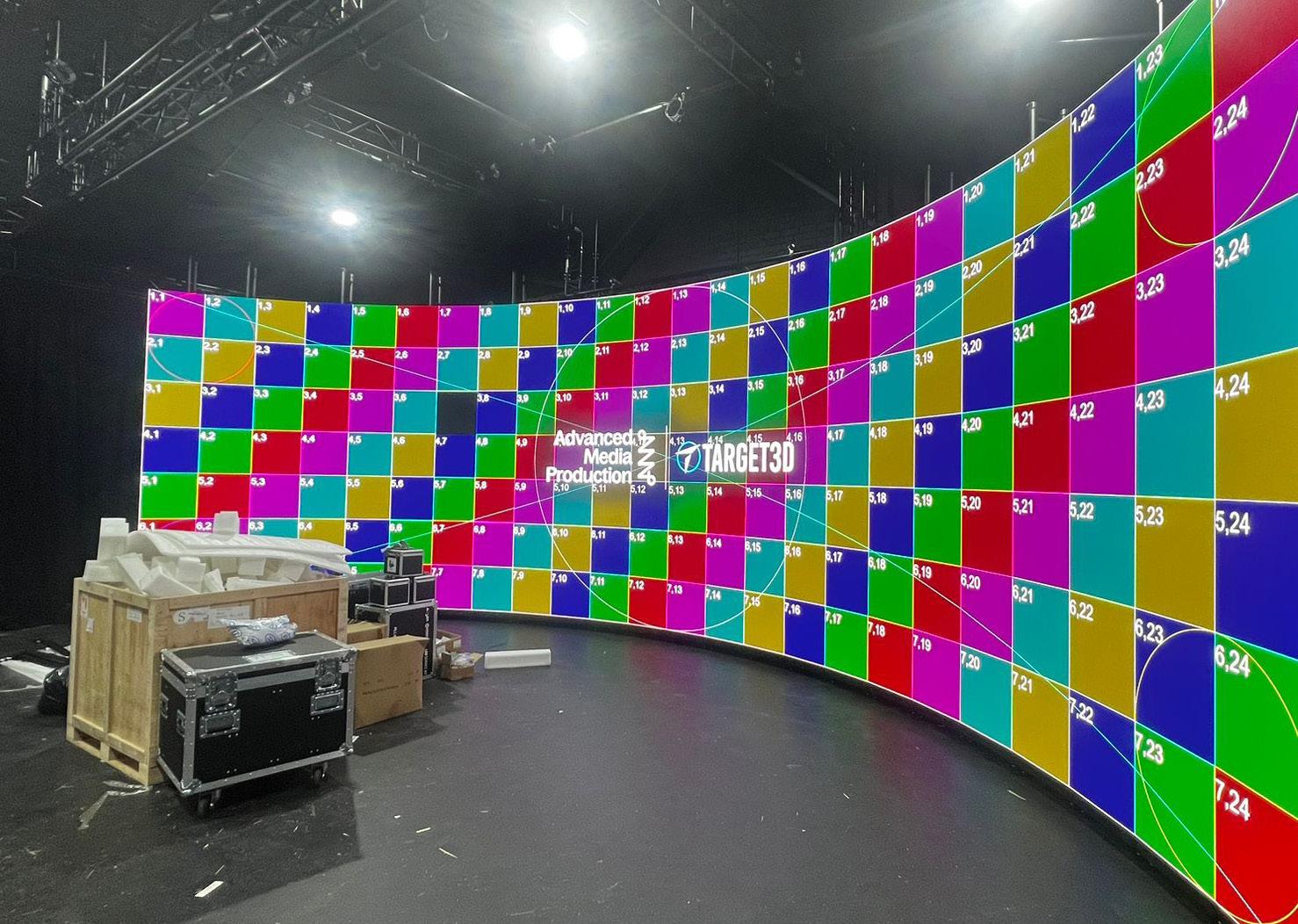
by Paul Taylor
Shannon Dowsing, Director of Target3D New Zealand and former Tairāwhiti Gisborne councillor, says: “From the day they give us the keys, we’ll be documenting everything from an R&D perspective.
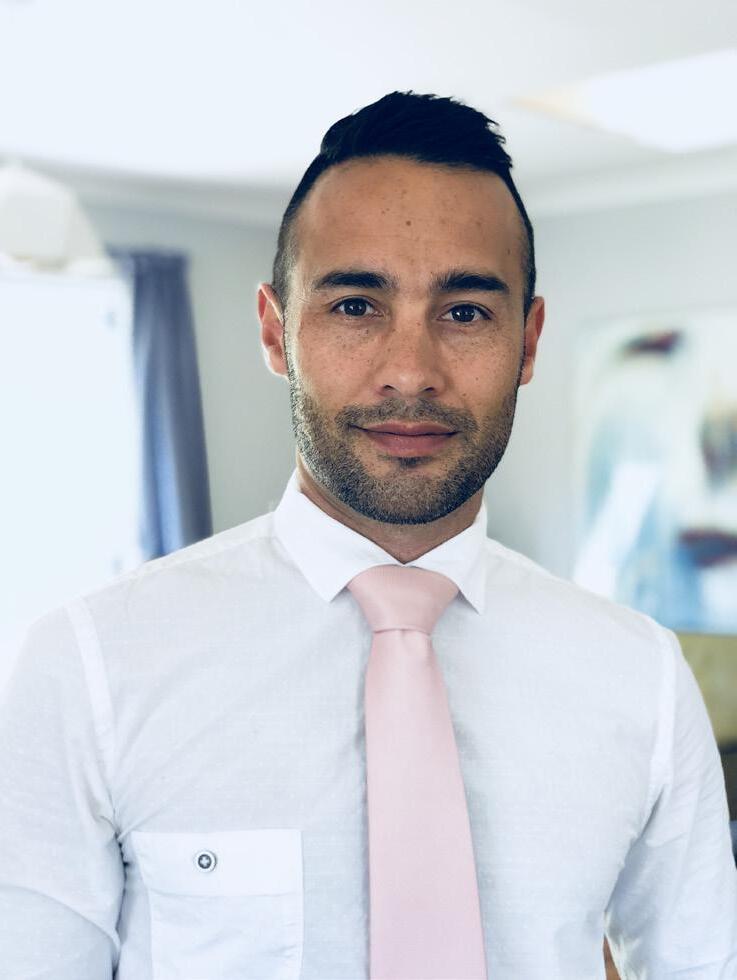
“We’ll share the journey of the build, what it takes to build one of these studios in New Zealand, the challenges, why we select particular products over others.”
The company has already designed and managed studio builds at elite education institutes including LIPA (Paul McCartney’s former school), Cambridge University, the University of Liverpool, Rose Bruford College and Goldsmiths, University of London.
It is a supplier of the tech to other organisations in the UK and Spain and has also established the UK Institute of Virtual Production, supported by the UK Government, as a resource for the film industry.
“We want to do the same here and provide a resource for the NZ film industry,” Dowsing says. The Queenstown studio will have essentially identical specs to Target3D’s new studio in London.
“The reason is we want to be able to do colocation projects. We want to be to have one actor on our stage in Queenstown, another in London, and have them interacting as if they were on the same set.
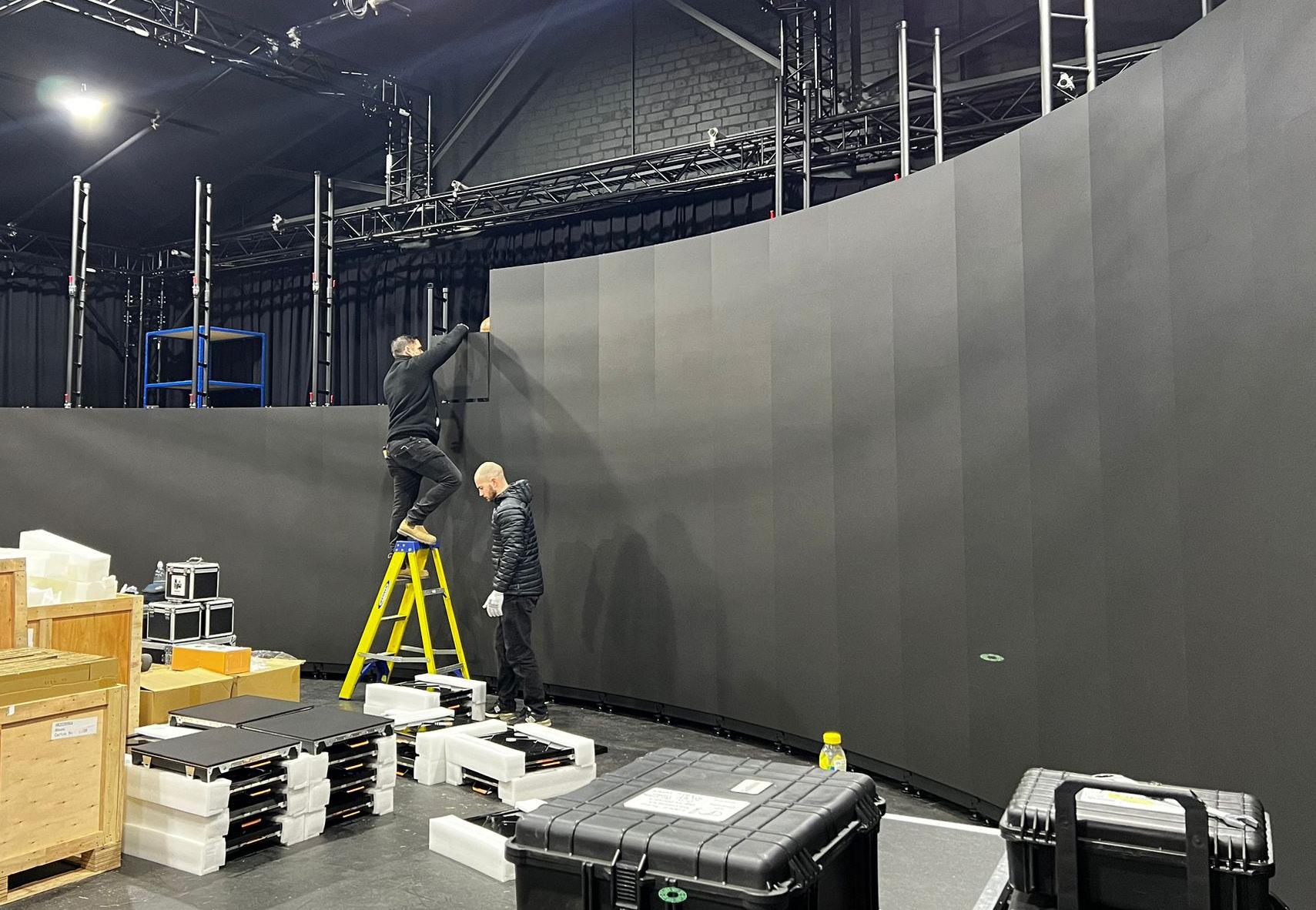
“We can create scenarios where we have two perfectly indistinguishable plates, with matching robotic camera movements, identical background, lighting etc.”
The exacting specs for the 450sqm space will even influence Remarkables Park’s building design, such as weight-loading for the foundations, ceiling heights, electronics and other considerations.
Even Chorus has come to the party, upgrading its exchange capacity in Frankton to take the fastest high-speed fibre broadband.
Creating educational pathways is also at the heart of what Target3D does, along with its sister company Rāngai.
“I looked at bringing Target3D to New Zealand about five years ago. At the time I was a district councillor and on our economic development agency here in Tairāwhiti.
“And the problem with introducing the business was the concept of talent importation, and gentrification, creating issues in the region.”
Realising there was a very small workforce for such industries, Dowsing set up Rāngai to provide education. It is the first company to have a contract with the new Te Pūkenga (New Zealand Institute of Skills and Technology) as an accredited education provider. It provides screen production training from its Tairāwhiti Gisborne studio, including paid work on real-world productions, and operates a cast and crew agency.
The aim is to have a workforce which is 75% local and that ethos will come to Queenstown’s Target3D studio, although how it will tie in with Te Pūkenga’s Southern Institute of Technology, Otago University and neighbour Wakatipu High School is still to be worked through.
“In Tairāwhiti very few people go on a tertiary pathway, but that’s different for Queenstown. So those are the conversations we’ll have. What gap do we need to fill? Are we workforce development, rather than an education provider, helping students upskill with real-world experience outside their student hours?”
The relatively small studio expects to employ six permanent staff, with dozens more working there on productions.
5 minutes on Machine Learning with Pradeesh
by Jessica Allen
QRC’s Machine Learning Tutor and Tech Ambassador, believes that artificial intelligence (AI) technology can help alleviate some pressure on Queenstown’s hospitality and tourism industry. The 16-week course he teaches tells participants about AI within New Zealand and how they can utilise it. Pradeesh completed a PhD in Computer Science at the University of Otago and has been teaching the course since November last year.
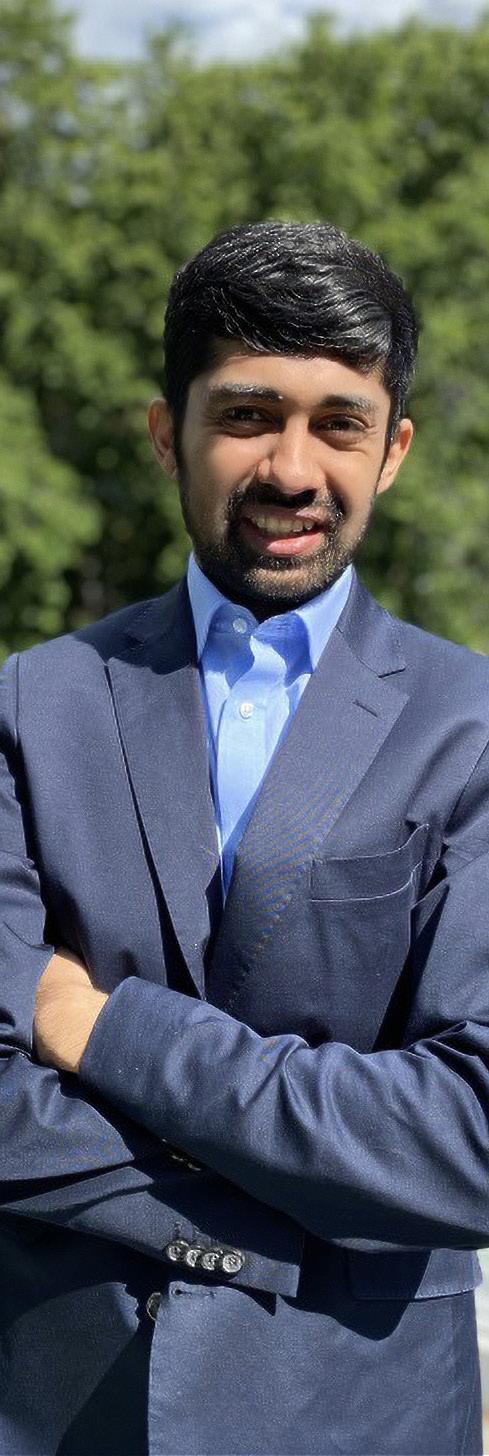
He refers to himself as a tech evangelist and believes that AI won’t take jobs away, but rather make things easier – he wants us to harness technology and upskill ourselves to use it to progress. Some examples he gives on how businesses can utilise AI are through booking systems, creating loyalty programmes where systems can recognise regular customers, and to help translate or cater to different markets – AI can help to translate menus or allow those that speak English as a second language to navigate websites and make bookings.
“There are so many unknowns because we do not know what we don’t know,” says Pradeesh, “I highly recommend that people, especially business owners, who want to upskill or understand how AI could help their business to take a course or to have a chat. Just come in and understand what AI could actually do to help your business – AI by itself can’t do anything, but with input from a human we could do lots of interesting things.”
Some people and businesses may be resistant to embracing AI and new technology as they think it will take jobs away or remove that human touch. Pradeesh says that as it stands, AI can’t “think outside the box” and is there to work in conjunction with humans, not totally independently.
“It shouldn’t be used as a crutch; it should be used as a tool. I can understand the fear for a lot of people – there’s one thing AI can’t really take away from us, and that is our human ingenuity in the way we think outside the box. They can’t think, so machines are very good at analysing patterns and they can give you insights. We can use AI as a partner to do the heavy lifting and give us insights, but we use our human intuition and intelligence to make sense of what the AI says and advance ourselves. I can understand that there may be resistance, but it’s important to understand that AI has its limitations,” says Pradeesh.
